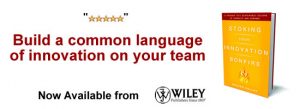Abandon the Myth That Everything Happens For a Reason and Try This Instead
Failure and loss are inevitable, but trying to rationalize them can be the last thing you need to do.

Yes, I know, you want to recoil at the the headline of this column. Stick with me. The last thing I’m advocating is that life is without purpose. But, it can certainly be random and, like a child whose favorite toy has just been lost, there are times when we just want to scream, It isn’t fair!”
Guess what, it isn’t, but as I look at those people who I admire most–the ones who are truly successful–and consider how they live their lives, I find that the notion of there being a reason for every loss and failure is something they patently reject as a way to pawn off the responsibility of making hard choices about how they choose to live their lives. In fact in nearly every case these same people have overcome tragedy and pain that would make most people curl up into a permanent fetal position.
The fact is that we’ve colloquialized the notion of there being a reason for everything to the point of absurdity. It’s not that “reason” is completely absent from our lives, or that it should be, but that we use it as a crutch for avoiding growth and often look for it in all the wrong places; a higher power, fate, a preordained script for our life, a greater purpose, or some omnipotent force of the universe that knows what’s best for us. What if it’s none of the above?
I get that we use the phrase to offer comfort by giving meaning to events that often seem to be without any conceivable reason.
“The responsibility for success is on you; so is the responsibility for creating meaning out of life’s biggest disappointments.”
But, I’ve always found it profoundly unsettling and extraordinarily selfish to believe that the sole purpose of life’s heartaches, failures, losses, illnesses, and assorted derailments is to teach us some fateful lesson that we have been preordained to learn. A failed business, a severe illness, divorce, the loss of a loved one, dashed dreams, natural disasters, each is excruciating in its own unique way. But, the idea that life’s unfairness is somehow supposed to be justified by a scripted reason is to me the ultimate abdication of accountability; hell, why mince words, it’s outright lazy.
It’s the same sort of lazy thinking that we buy into when we accept that success is just about being at the right place at the right time? “Hey, that could have been me if I’d just had the same breaks he did!” Sure, but apparently the same force that is making everything happen for a reason isn’t too keen on giving you a break. This isn’t an assault on faith. I’d actually like to believe that any higher power would prefer granting us free choice over marionette strings.
Besides, if you’re reading this it’s safe to assume that you live in that small and extremely fortunate slice of humanity that is not lacking for an abundance of breaks and opportunities. The responsibility for success is on you; so is the responsibility for creating meaning out of life’s biggest disappointments.
It’s About Creating Meaning, Not Finding Reason
Notice I said meaning, not reason. While we should own up to mistakes we’ve made that account for a failure, often times there is simply no good reason why something bad has happened, nor should we accept that there is. It’s reminiscent of the famous Lennon quote from the song Beautiful Boy, “Life is what happens to you while you’re busy making other plans.”
I’m not discounting the possibility that luck plays a role in the trajectory of our lives or that events can be instrumental in helping us to define our purpose. But when terrible things happen to us it’s rarely just us that they impact. Saying that the reason they happened was to help us is a convenient and selfish excuse to absolve ourselves of responsibility and to outright ignore the pain that these same circumstances have caused to others.
“We don’t own events or their reasons. We own what we do with them.”
When my mother struggled for nearly a decade with a horrid disease that robbed her of mobility and cognition one synapse at a time I repeatedly tried to tell myself that there was a reason. Otherwise all of that pain and suffering was for nothing. Each time I’d have that thought I’d then look at her and think, “Whatever I may be learning about the fragility and value of life, how could I possibly justify a reason for her pain?” Was the world created with reasons to teach me lessons at the expense of someone else’s suffering?
What I realized was that it didn’t happen for some predetermined prescriptive reason. Instead it was my responsibility to create something much more important than a reason–I had to create meaning.
There is a profound subtlety in that switch from reason to meaning which goes well beyond semantics and instead speaks to the more important process of being accountable for how we heal and grow and, in turn, how we create value that in some ways outlives the pain. Perhaps, it may even eclipse it. Hard to accept that when you’re in the midst of grieving any kind of loss, right? Of course, but it’s the prospect of creating meaning which best guides us through failure and loss. Giving meaning to an event is a world apart from finding a reason for it. The former can exist in a complete absence of the latter. One clings to the past and the other focuses on the future.
We have all seen examples of this, but one that has been a deep inspiration to me is that of a good friend who a few years ago lost her husband in a terrible accident. He had just retired early, they had two very young children to raise, and a lifetime of plans ahead. In one terrible instant everything changed. It’s a scenario that few of us would ever care to contemplate.
Would you want to be the one to tell her it happened for a reason? No reason could justify that pain for her and her family and the loss of a life so suddenly cut short.
Instead she set out to create something that brought her, her children, and countless others to a place of healing by establishing an organization that helps those who have lost a spouse cope with the sudden loss. The look of joy in her eyes and the passion in her voice today is because she made the courageous choice to create meaning from something that will never have, nor should have, any acceptable reason.
The truth is that the “reason” bad things happen isn’t somehow baked into our life’s trajectory. Terrible things do not happen for reasons we can understand, or even accept. But that doesn’t mean that we are helpless. We are the ones who give meaning to what happens in our life–with or without an acceptable reason.
If you are perpetually looking for the reason to somehow make itself known to you, to magically appear, to fall from the sky, neatly wrapped with a bow, then you are avoiding the much harder work of taking what happened to you, and to others who were impacted by it, and creating something that has value; something which you will look back on with the pride of knowing that you weren’t following a script but instead writing it.
Whether it’s a business failure, a personal loss, or a professional setback, the same lesson applies. We don’t own events or their reasons. We own what we do with them.
Make no mistake, however, creating meaning requires heavy lifting, and infinitely more effort than accepting some unforeseen reason that you have no control over. It means moving from being a victim of your circumstances to a creator of your future, shaping despair and pain into hope, failure and loss into success.
Ultimately, it means looking back with gratitude, not on the unfair events that have buffeted and battered you, but rather on the opportunity to define a path forward that you’d likely never have taken otherwise.
That’s as close to fair as the world ever gets.
This article was originally published on Inc.
Image credit: Pixabay
Wait! Before you go…
Choose how you want the latest innovation content delivered to you:
- Daily — RSS Feed — Email — Twitter — Facebook — Linkedin Today
- Weekly — Email Newsletter — Free Magazine — Linkedin Group
 Tom Koulopoulos is the author of 10 books and founder of the Delphi Group, a 25-year-old Boston-based think tank and a past Inc. 500 company that focuses on innovation and the future of business. He tweets from @tkspeaks.
Tom Koulopoulos is the author of 10 books and founder of the Delphi Group, a 25-year-old Boston-based think tank and a past Inc. 500 company that focuses on innovation and the future of business. He tweets from @tkspeaks.
NEVER MISS ANOTHER NEWSLETTER!
LATEST BLOGS
Starbucks and Big Tobacco
Back in the 1950’s smoking was glamorous, and just about everybody who was anybody smoked cigarettes. Then came the discovery, to the shock of millions, that sucking smoke into your lungs might not be good for you. Then came another revelation that one of the substances in tobacco, nicotine, which was used as a poison by the Egyptians during the times of the Great Pyramids, is addictive. People then began a mass exodus from the consumption of nicotine via inhaled smoke.
Read MoreWal-Mart Goes Green – What about your company?
With the price of gas above $3.00, some companies (and hopefully all) are beginning to look at the fuel efficiency of their fleets. Wal-Mart is the most public example of this with its trucking fleet. Its efforts include:
Read More



